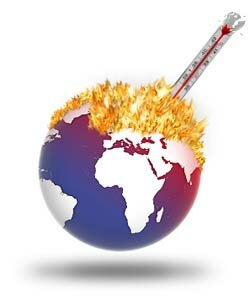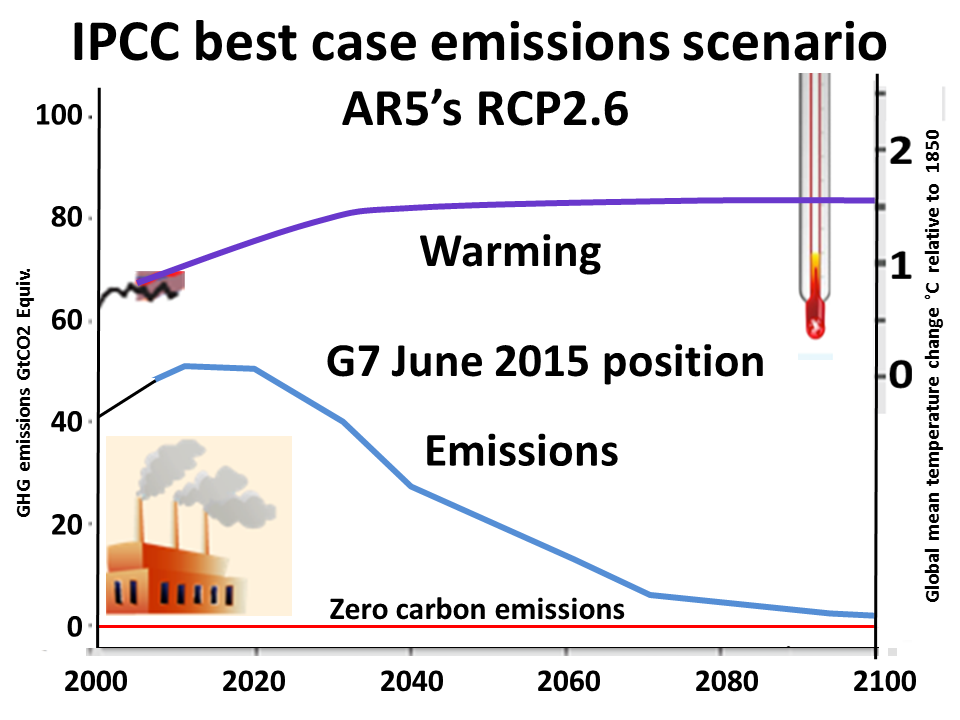UK Climate and Health Council Pledge and Declaration
Tackling climate change and ending poverty are the two most important, urgent priorities to ensure global health, justice and survival for present and future generations.
— Climate and Health Council

The Climate and Health Council in the UK is calling all health professionals to sign their pledge "to protect health through active engagement to limit the causes of human-caused climate change."
They are seeking 10,000 doctors and health professionals to sign on before March 2009, and will then initiate a public campaign in lead up to the December 2009 UNFCCC negotiations in Copenhagen.
The Climate and Health Council can serve as a model for healthcare organizations everywhere. It takes action on climate change in five ways:
- Informing about issues related to climate change and global health
- Affirming beliefs on a personal and professional level
- Advocating a global framework for action
- Innovating by developing and supporting new solutions
- Disseminating key information to those in a position to help
Declaration of the Climate and Health Council
Click here to visit the Climate and Health Council Declaration website.
We as health professionals and health managers, concerned about the effects of climate change on global health and the environment;
|
Recognising that the factors leading to climate change threaten the basic elements of life for both present and future generations, including access to food, water, shelter, clean air and health; Aware that declining crop yields, especially in the poorest countries of the world, could leave many millions without the ability to produce or purchase enough food to sustain healthy life; Appreciating that climate change-induced sea level rises, flooding and drought, will lead to the displacement and suffering of hundreds of millions of people and could spark national or international conflict; Familiar with the scientific evidence indicating that climate change will increase the spread of vector-borne diseases such as malaria and dengue fever; Knowing that most of the health burden of climate change is borne by women and children in developing countries; Conscious of the uncertainties in predicting the impacts of man made climate change on health and the environment, and the risks of major irreversible changes with important consequences; Appreciating that substantial reductions in greenhouse gas emissions are urgently required to reduce the risks of serious climate change; Recognising that population stabilisation is fundamental to both global efforts to mitigate climate change and the ability to adapt to it; Aware that in the countries responsible for most greenhouse gas emissions, policies to reduce carbon emissions have the potential to bring important public health benefits, through increases in physical activity, improvements in air quality, decreases in road traffic injuries, increased home energy efficiency and the adoption of diets that contain less animal products; |
Call on governments of the world to put in place a global framework such as the Global Commons Institute's Contraction and Convergence to cap the emissions of greenhouse gases such that the atmospheric concentration of CO2 does not rise above 450 ppm;
Call on governments of the world to transfer resources to the poorest populations of the world so that they can adapt to the climate impacts that are now unavoidable as a result of anthropogenic greenhouse gas emissions and can meet their development needs, including population stabilisation, without further contributing to adverse health and environmental impacts at a local and global level;
Call on individual health professionals to measure and reduce their own carbon footprint and to push for health-related institutions to adopt sustainable practices, recognising that in doing so we will be greatly enhancing the persuasive power of our advocacy as well as contributing to the transition to a low carbon world;
Call on research institutions to invest resources in exploring the most effective way of reducing carbon;
Call on all health professionals and other professional groups to join in supporting this declaration and to take urgent action on this issue within their own spheres of influence.
Climate and Health Council Declaration Website

Signatories to the Climate and Health Council Declaration
Academy of Medical Royal Colleges
Association of Public Health Observatories
British Holistic Medical Association
Conference of UK Postgraduate Medical Deans
Doctors for Human Rights
Faculty of Medicine & Dentistry, University of Bristol
Faculty of Public Health
Finnish Medical Association
GreenNet
Heads of Academic Departments for Public Health
International Physicians for the Prevention of Nuclear War
International Society of Doctors for the Environment (Europe)
ISDE Austria
Israeli Medical Association
Leijerstam Medical AB
New Zealand Medical Students Association
PHMUK
Physicians for Global Survival
Physicians for Social Responsibility
Royal College of Anaesthetists
Royal College of Nursing
Royal College of Physicians
Royal College of Physicians and Surgeons of Glasgow
Royal College of Psychiatrists
Royal Society of Medicine
Swedish Doctors for the Environment (LfM)
Swiss Doctors for the Environment (Aerztinnen und Aerzte fuer Umweltschutz)
UK Public Health Association
British Medical Journal
Journal of Epidemiology and Community Health
Lancet
plus numerous individual professionals in the healthcare field
Partnerships
"The Climate and Health Council works in partnership with the Health and Sustainability Network to inform, affirm, advocate, innovate and disseminate. We jointly:
- Affirm the importance of personal action
- Seek to inspire and motivate NHS organisations to take action
- Support the public health and clinical communities in reaching out to patients and communities
- Lobby and advocate at all levels
- Communicate with the wider public health workforce in local government and NGOs
- Promote the development of personal carbon trading through the RSA pilot"

Return from Climate and Health Council to Emergency Action

2017 WHO 5th Climate & Health Summit
2014 Lancet From Public to Planetary Health:
A Manifesto
2014 BMJ Climate Change & Human Survival
2014 BMJ Climate Change
is a Health Emergency
IPCC 5th Assessment
Climate & Health Council




